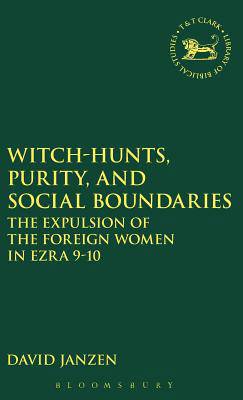
- Retrait gratuit dans votre magasin Club
- 7.000.000 titres dans notre catalogue
- Payer en toute sécurité
- Toujours un magasin près de chez vous
- Retrait gratuit dans votre magasin Club
- 7.000.0000 titres dans notre catalogue
- Payer en toute sécurité
- Toujours un magasin près de chez vous
Witch-Hunts, Purity, and Social Boundaries
The Expulsion of the Foreign Women in Ezra 9-10
David Janzen
440,95 €
+ 881 points
Description
The anthropological approach to the expulsion of the foreign women from the post-exilic community argues that it was the result of a witch-hunt. Its comparative approach notes that the community responded to its weak social boundaries in the same fashion as societies with similar social weaknesses. This book argues that the post-exilic community's decision to expel the foreign women in its midst was the direct result of the community's inability to enforce a common morality among its members. This anthropological approach to the expulsion shows how other societies with weak social moralities tend to react with witch-hunts, and it suggests that the expulsion in Ezra 9-10 was precisely such an activity. It concludes with an examination of the political and economic forces that could have eroded the social morality of the community.
Spécifications
Parties prenantes
- Auteur(s) :
- Editeur:
Contenu
- Nombre de pages :
- 192
- Langue:
- Anglais
- Collection :
- Tome:
- n° 350
Caractéristiques
- EAN:
- 9781841272924
- Date de parution :
- 18-06-02
- Format:
- Livre relié
- Format numérique:
- Genaaid
- Dimensions :
- 165 mm x 241 mm
- Poids :
- 408 g

Les avis
Nous publions uniquement les avis qui respectent les conditions requises. Consultez nos conditions pour les avis.






